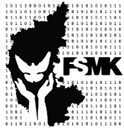http://economictimes.indiatimes.com/infotech/internet/Post-online-CAT-disaster-IIMs-plan-to-switch-to-Foss-/articleshow/5338309.cms
Just in case they remove that article, copying the contents here. :). Thanks to Abrar for calling me an expert.
Online CAT may use open source code post glitch
15 Dec 2009, 1235 hrs IST, Peerzada Abrar, ET Bureau
BANGALORE: The leading IIMs, still smarting under the recent fiasco over the online CAT debut, are creating their own firewall against similar disasters in
future. After an elaborate post-mortem of the recent disaster, many IIM officials are exploring the idea of using free and open source software (Foss), rather than going in for proprietary software, to prevent online common admission test disasters in future.
“Online exams can be easily conducted using Foss as it can not only reduce costs by over 50%, but it is also safe against virus and malware attacks,” said one of the IIM officials. Infact, US-based Prometric — which bagged the high-profile $40-million contract to organise the online CAT using proprietary software like Microsoft Windows, along with NIIT — has pinned the main reason for this year’s disaster on the virus attacks.
Despite installing several security measures, they were unable to circumvent the virus attacks, which impacted over 20,000 candidates. Unlike the open source software, proprietary software is not for free and has to be bought.
Experts like T Vignesh Prabhu, a hacker at ‘deeprootlinux’, which is dedicated to developing and supporting Foss, said virus attacks form the major concern of IIMs. “The only solution is to discard the virus-prone operating system you have been using and install Foss, such as GNU (a free software) and Linux-based operating systems,” he said.
Foss software, which grants users the right to study, change, and improve its design through its source code, is the most preferred option. He said, there is enough statistics to prove that GNU/Linux-based operating systems are less prone to virus attacks. The only other way is to keep fighting the viruses by installing the latest updates of various anti-virus softwares.“And, you have to keep your fingers crossed hoping that developers of anti-virus companies are just as fast as the virus-writers,” he added.
Officials at Prometric, which had used proprietary software this time, said many centres were affected by mainly two viruses — Conflicker and W32.NIMDA. IIM officials said this happened despite the fire-walls systems installed. They said the CAT computers were sourced and leased from local colleges in the cities where the examinations were held. They said most of the CAT computers got infected through the servers and other computers in various colleges through the local area network (which is a computer network covering a small physical area like a group of buildings). Also, the existing data on some of the 17,000-20,000 CAT work stations has not been deleted.
IIM officials said many of these 17,000-20,000 computers were prone to virus attacks as they may not have used the genuine proprietary software.
“I doubt whether Prometric really checked this. Many colleges may have used pirated software,” said one of the IIM officials. The Foss model is already working successfully in states like Kerala, where the state government’s IT@School provides IT-enabled education to 1.6 million students a year in the state using Foss. “We will use Foss to handle over four lakh admission application forms in a period of 10-15 days for two lakh 11th standard seats in government and government-aided institutions,” said IT@ School executive director K Anvar Sadath. He said the CAT exam can be run successfully on Foss without any virus threats.
Despite all these advantages, some IIM officials also said it will be difficult to conduct exams like CAT on Foss as it is not user-friendly and there is very less awareness about it.
Meanwhile, top IIM officials said they are determined to continue to hold the CAT exam according to the online format, and not go back to traditional paper-pencil one. “Online tests take place globally on a large scale. IT-enabled education is the way ahead,” IIMB director Pankaj Chandra told ET on Wednesday. He said they are reviewing student grievances and are coming up with new guidelines to screen those who deserve to be given a retest to ensure that only genuine candidates enter IIMs.
IIM officials said they were reviewing thousands of hours of video recording of the entire CAT 2009 exam to screen such candidates. Infact, European Union is one of the biggest supporters of Foss at present, having shifted all its public administration details to the Foss format.
Japan aims to switch some of its government computers to the free Linux operating system and reduce its dependence on Microsoft Windows. Japan saw the use of Linux as a way of lowering procurement costs and bolstering its defence against cyber-attacks. Like Germany, France and other European countries, Japan, South Korea and China long have been wary of leaving too many government computers and networks dependent on Windows. Many experts view Windows as too prone to computer viruses and hacking.

